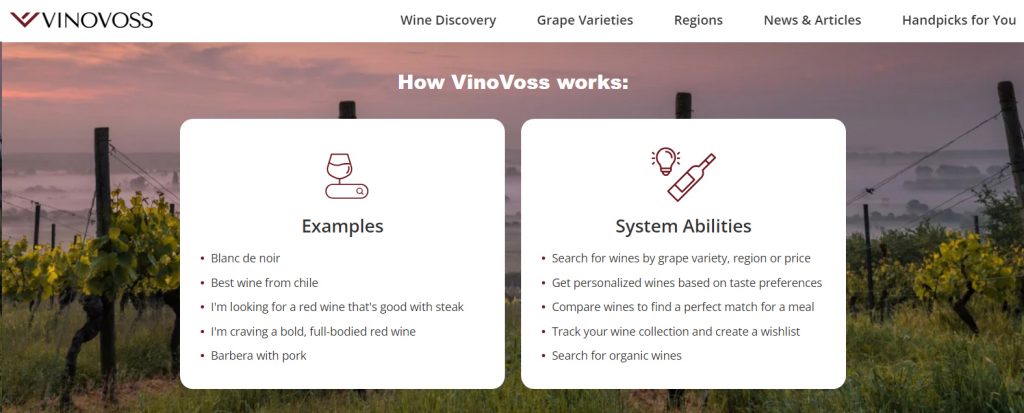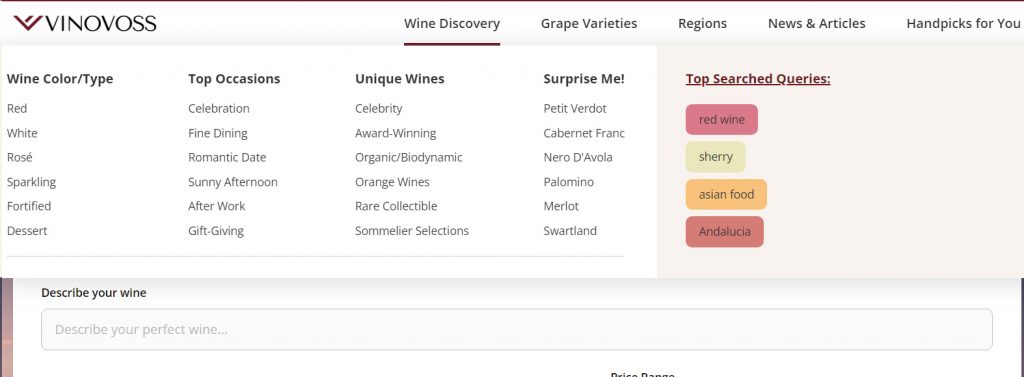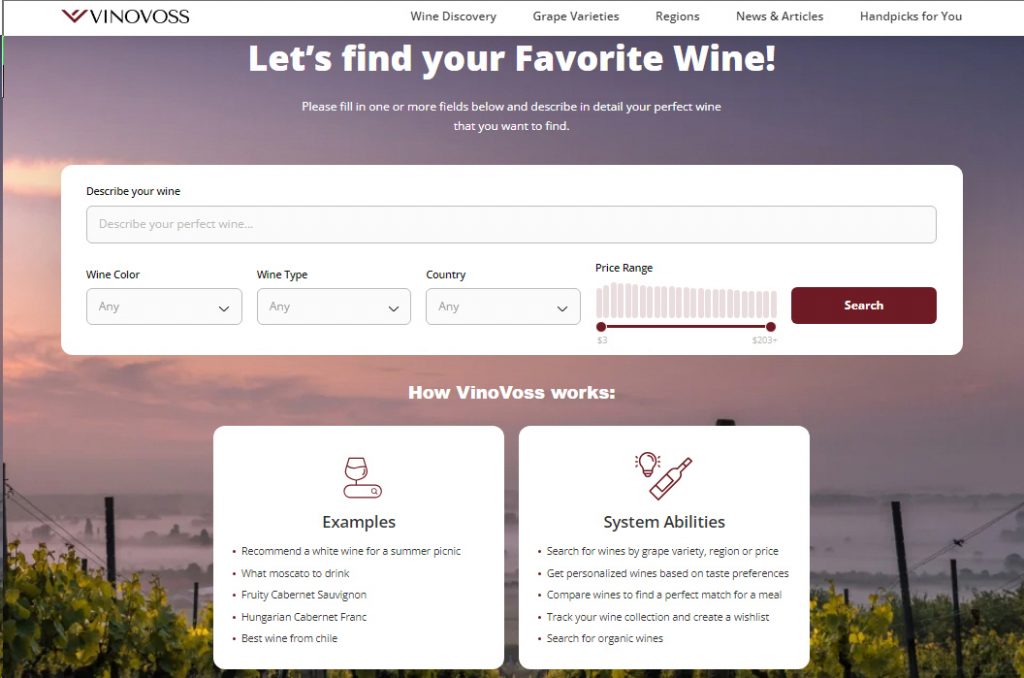Interview With Angel Vossough, CEO at BetterAI
Angel Vossough, CEO and Co-Founder of BetterAI, leads the creation of innovative AI solutions like “VinoVoss”. VinoVoss is a semantic search and recommendation system, creating a virtual wine sommelier. A serial entrepreneur with a deep tech background, Angel holds a Bachelor’s degree in Mathematics and a Bachelor’s degree in Computer Engineering, a Master’s degree in Software Engineering in Network Security from San Jose State University (SJSU), and a Master’s degree with honors in Data Science from the University of California, Berkeley (UC Berkeley).
Angel’s diverse experience includes roles at Cisco Systems, DiverseUp and Caspian Capital.
Hello Angel! We are happy to offer you an opportunity like an interview to tell a wider audience more about you and your experience. You have an impressive background, and first, our readers and I would like to know more about how you started your career and got into this field?
My journey in technology began with a passion for applied math and coding. This interest led me to pursue my Bachelor’s degrees in Mathematics and Computer Engineering and then a Master’s in Software Engineering. After this, I worked at Cisco for over a decade as a network engineer. I became fascinated by the power of statistics and the potential of big data. My role involved analyzing vast amounts of data to monitor network performance and detect anomalies, which was both challenging and incredibly rewarding.
As one of the only women on my team, I was also tasked with recruiting and supporting other women in technical roles. This experience revealed not only the complexities of integrating a demanding tech-career with personal life stages, but also the significant drop-off of talented women in tech after starting families. Watching my high-achieving female friends struggle to balance their careers and personal lives further fueled my desire to create solutions that could help women navigate these challenges better.
This drive led me to found my first company, DiverseUp, a platform designed to help professional women find employers with supportive and inclusive policies. Later, my passion for data and AI led me back to academia to pursue a second Master’s in Data Science. This culminated in my latest venture, BetterAI, and the creation of our flagship product VinoVoss, a virtual sommelier.
I know that you are using AI, computer vision, NLP and other technologies to create “VinoVoss” (an AI-powered virtual wine sommelier), a transformative semantic wine search and recommendation engine that is revolutionizing the relationship between wine and digital platforms. Can you tell us more about this solution?
In creating VinoVoss, we are using the latest AI technology to enhance the wine selection experience. As mentioned, we use natural language processing (NLP), and computer vision to understand and interpret user inputs and queries. Unlike traditional search engines, VinoVoss is a semantic search engine, which is capable of understanding user queries and provides a better user experience for both wine enthusiasts and people new to wine.
For instance, if a user describes their ideal wine experience using subjective terms like “I am looking for a fruity and bold red wine that goes well with grilled steak for my friend’s 50th birthday”, VinoVoss can interpret the query and understand the user intent to recommend the best wine available in our database. The goal is to make wine discovery more intuitive by bridging the gap between user expectations and the complex world of wine.


Why did you decide to use AI in an industry like wine? How did you get the idea?
The idea for VinoVoss came from a personal struggle when selecting wine. Wine selection can be an intimidating experience at a restaurant or wine shop, since the process is often loaded with jargon and subjective descriptors. I became curious about the complexity underlying the wine selection process. When I went back to school to earn my second Master’s degree in Data Science at UC Berkeley, I decided to focus my capstone project on wine search and recommendation using natural language processing (NLP). This was an exciting challenge for applying AI to the traditional industry of wine. Our academic research evolved into BetterAI’s new product, VinoVoss.
By integrating AI, computer vision, and NLP, VinoVoss aims to simplify and enhance the wine selection process and provide tailored, intelligent recommendations.
Could you demonstrate how your tool works? On video or with some pictures.
Here is our landing page for searching wines. The user can enter a search query using their own language with their current level of knowledge. This means that VinoVoss can assist both wine enthusiasts using specific wine terms, as well as beginners. VinoVoss is additionally trained to understand peripheral, non-wine content in the user’s query, such as descriptions of the occasion, event mood, weather – anything that the user wishes to include.
Here is an example of a user search:

As you see in the page results below, the system found and applied relevant filters based on the user’s query.
What do you think AI, computer vision and other technologies will do in the next 5 years?
The next five years are poised to be transformative for AI, computer vision, and related technologies. We can expect these technologies to become more integrated into our daily lives, offering hyper-personalization and efficiency. AI will continue to enhance decision-making processes across many sectors, from healthcare to finance, by providing deeper insights and automating more complex tasks.
Computer vision, in particular, is likely to revolutionize areas such as autonomous driving, augmented reality, smart houses, and smart cities by enhancing how machines understand and interact with the physical world. Additionally, advancements in NLP will enable more natural and intuitive interactions with technology, further blurring the lines between human and machine communication. These developments will drive innovation, create new opportunities, and address challenges in ways we are just beginning to imagine.
What challenges did you face when launching VinoVoss? Can you share them? What did you learn from these challenges?
One of our biggest challenges was ensuring the accuracy and relevance of our search and recommendation results. Wine is highly subjective, and preferences can vary widely. Therefore, we had to come up with creative solutions in building and training our models to handle numerous varying scenarios.
Data preparation was another challenge, from curation to verification. We had to ensure our database was and is not only comprehensive, but also maintains high standards of accuracy and consistency as this work continues – we are always trying to improve the data we have, and new wines and vintages are released throughout every year.
We also had to work on creating an intuitive user interface that caters to both casual wine drinkers and connoisseurs, which required extensive user testing. By continuously testing, learning, and refining our platform based on feedback, we were able to create a more robust and user-friendly solution.
You are also the founder of DiverseUp, a benefit corp that creates a professional community for women technologists and scientists. How did you come up with this idea? What is the mission of DiverseUp?
I founded DiverseUp out of a desire to address the systemic challenges that women in tech face, particularly around work-life integration and career advancement.
I was very fortunate that Cisco was a leader in having enlightened policies on flexible work, which allowed me to continue work remotely while raising my children for the first year of their lives in 2010. But at the same time, I was witnessing my high-achieving female friends, intelligent and highly qualified, “dropping out” after starting families.
Many of these friends gave up on their careers due to lack of support from their employers, which prevented them from effectively integrating their personal lives and careers. Meanwhile, every year Forbes was publishing “America’s Best Employers For Women”, and I wondered what this really meant. Our lives as women are dynamic, and depending on what stage we are at in our lives we need different things. Usually, in our 20s we want to advance our careers and climb the corporate ladder, while in our 30s we might need increased job flexibility and longer maternity leave or hybrid and remote work solutions. As a result of this variability, we need different decision-making criteria for different life situations.
This realization led me to start “DiverseUp”, to help women gain more insight relevant to their priorities when choosing an employer. DiverseUp was created as a benefit-corp to serve professional women seeking to expand their careers and achieve a sustainable work-life balance. DiverseUp provides women an inside look into which companies have female-friendly policies and culture, and matches them with job opportunities at those companies. DiverseUp aims to bring transparency to work practices, measure diversity policy effectiveness, and help companies attract and retain female talent.
Could you tell us about what you are doing in this community? What are some notable contributors in this community?
In addition to DiverseUp, I am involved in the Society of Women Engineers, and a few other non-profits primarily led by entrepreneurial and professional women. I have had the opportunity to network and listen to the experiences of many female thought leaders from around the globe as they attend and speak at events in Silicon Valley.
What are you personally learning from this community?
DiverseUp has been an incredible learning experience for me. I’ve gained a deeper understanding of the diverse challenges women face in tech. It has also reinforced the importance of community and the power of collective action. By sharing our stories and supporting one another, we not only amplify our voices but also create meaningful change.
Now let’s talk a little bit about you so that our readers can learn more about you. Can you recommend any useful resources for those who are passionate about technology? For example, any media resources (blogs, etc.).
For those passionate about technology, I recommend resources like TechCrunch, Wired, and MIT Technology Review for staying updated on industry trends and innovations. For a deeper dive into AI and data science, platforms like Coursera and edX offer excellent learning opportunities. Additionally, following influential tech leaders on Twitter and LinkedIn can provide valuable insights and inspiration. Blogs like Towards Data Science and KDnuggets are also great for practical advice and community discussions.
Do you have any hobbies?
Yes, outside of work, I have a passion for cooking and learning about different cuisines. I enjoy experimenting with diverse ingredients and techniques, which parallels my approach to data science – combining various elements to create something new and interesting. This also allows me to connect with cultures and stories from around the world.
What is your favorite book?
One of my favorite books is “The Innovator’s Dilemma” by Clayton M. Christensen. It offers powerful insights into why companies fail despite doing everything right, and explores the impact of disruptive technologies. It’s a must-read for anyone involved in tech and innovation.
I also highly recommend a new documentary movie I recently watched, called “We Dare to Dream”. It is a deeply inspiring documentary that tells the incredible stories of refugee athletes who overcame hardship to compete at the highest levels of sport. The film is captivating as it not only highlights their grit and determination, but also the broader human spirit of resilience and the power of following dreams. It’s fascinating to watch because it reminds us that regardless of our backgrounds or the challenges we face, our dreams can drive us to achieve extraordinary things.
Which country would you like to visit? What fascinates you about it?
I would like to visit the Faroe Islands. This archipelago’s beauty and rugged landscapes greatly fascinate me. Interestingly, during the COVID-19 pandemic, I learned a lot about this incredible place through my involvement with OpenCovidScreen, a nonprofit organization we started to help with COVID-19 testing.
One of the things that truly amazed me about the Faroe Islands was their innovative approach to testing. They had already been developing cost-effective testing methods for their salmon fishing industry, knowing that insurance companies wouldn’t cover testing of salmon for infectious disease. This background uniquely positioned them to develop remarkably cheap and accurate tests for COVID-19. Their innovation was crucial to their COVID-19 strategy and allowed them to quickly implement testing at scale. This rapid and effective response not only led to the initial elimination of the virus from the Faroe Islands by late April 2020, but also showcased the extraordinary potential of small communities working together.
Which famous person inspires you?
Jennifer Doudna inspires me immensely. Her pioneering work in CRISPR-Cas9 gene editing has revolutionized the field of genetics. Beyond her scientific achievements, I admire her dedication to ethical considerations in science and her commitment to mentoring women in STEM. Her achievements in a traditionally male-dominant field have shown me the importance of perseverance, innovation, and the pursuit of knowledge.
